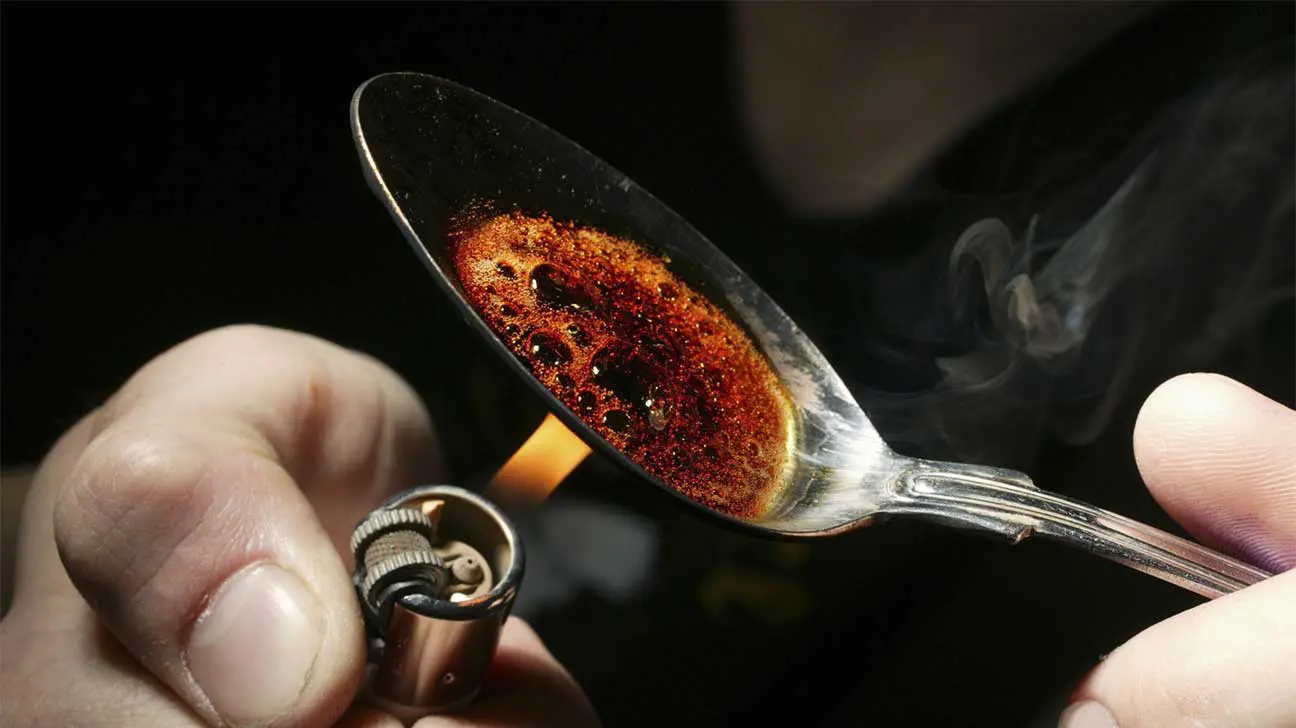
According to drug researchers, people who use black tar heroin have historically used a number of descriptive terms to describe what black tar heroin smells like.
Black tar heroin may smell like:
- vinegar
- garbage
- burnt sweets
- burning molasses
- opium
- unidentifiable chemicals
Black tar heroin is an addictive, illicit drug that can be injected or inhaled—a practice known as ‘chasing the dragon’.
What heroin smells like can vary according to different factors, including how it’s used, substances it’s been cut with, and how it was produced.
Learn more about identifying black tar heroin
What Causes The Smell Of Black Tar Heroin?
The smell of black tar heroin will largely depend on what’s in it. Black tar heroin is commonly cut with other substances—including any number of additives, fillers, or other drugs.
Black tar heroin may be cut with substances like:
- dirt
- shoe polish
- drugs like fentanyl, cocaine, or methamphetamine
The amount of actual heroin in black tar plateaus at 25 to 30 percent, on average.
Impure forms of brown heroin can give off a strong vinegar smell, whereas pure heroin may be odorless. Impurities in heroin may cause a chemical or garbage-like smell.
Identifying The Smell Of Black Tar Heroin Use
Most people who use heroin inject it into the veins, muscles, or under the skin. Another way it can be used is by heating up the black tar and inhaling it.
If heated, the drug will likely give off a burnt smell.
Black tar heroin has also been described as smelling like:
- something sweet
- food
- kitty litter
- urine
These smells may also stick to a person’s clothing or be left behind in the area in which the heroin was heated or injected.
Does Black Tar Heroin Smell Different From Powder Heroin?
Not all forms of heroin smell the same. Powder forms of heroin, sometimes referred to as hell dust or China white, will likely give off a chemical or vinegary smell.
The difference in smell comes from how it’s made and common substances these different forms may be cut with.
Powder forms of heroin have to go through a more extensive refining process than black tar heroin, which can alter its smell.
Black Tar Heroin Dependence And Addiction
Chronic use of heroin can lead to what’s known as drug dependence. This is a physical reliance on heroin that can lead to withdrawal symptoms within hours of your last dose.
People can also become psychologically addicted to its effects, due to how it interacts with certain brain chemicals. This can affect physical health, mental health, and behavior.
Black Tar Heroin Use And Health Problems
Black tar heroin use is a risk factor for a wide range of health problems through short-term and chronic use, including:
- hepatitis C
- necrotizing fasciitis
- life-threatening drug overdose
Find Addiction Treatment For Black Tar Heroin
Heroin addiction can be a chronic struggle without substance abuse treatment. If you or a loved one is unable to stop using heroin alone, we may be able to help.
Call our helpline today to learn more about different treatment options for heroin and how to find a treatment program that’s right for you.
Addiction Resource aims to provide only the most current, accurate information in regards to addiction and addiction treatment, which means we only reference the most credible sources available.
These include peer-reviewed journals, government entities and academic institutions, and leaders in addiction healthcare and advocacy. Learn more about how we safeguard our content by viewing our editorial policy.
- U.S. National Institutes of Health (NIH): National Institute on Drug Abuse (NIDA) — Heroin research report
https://www.drugabuse.gov/publications/research-reports/heroin/overview - U.S. National Institutes of Health (NIH): National Institute on Drug Abuse — Drug Facts: Heroin
https://www.drugabuse.gov/publications/drugfacts/heroin - U.S. National Library of Medicine: NCBI —The Textures of Heroin: User Perspectives on “Black Tar” and Powder Heroin in Two US Cities
https://www.ncbi.nlm.nih.gov/pmc/articles/PMC5027195/


